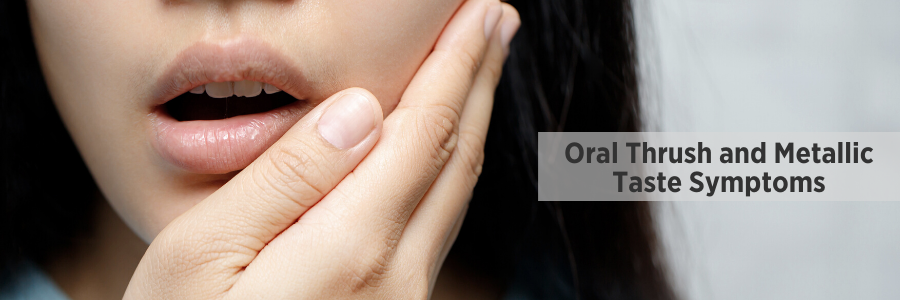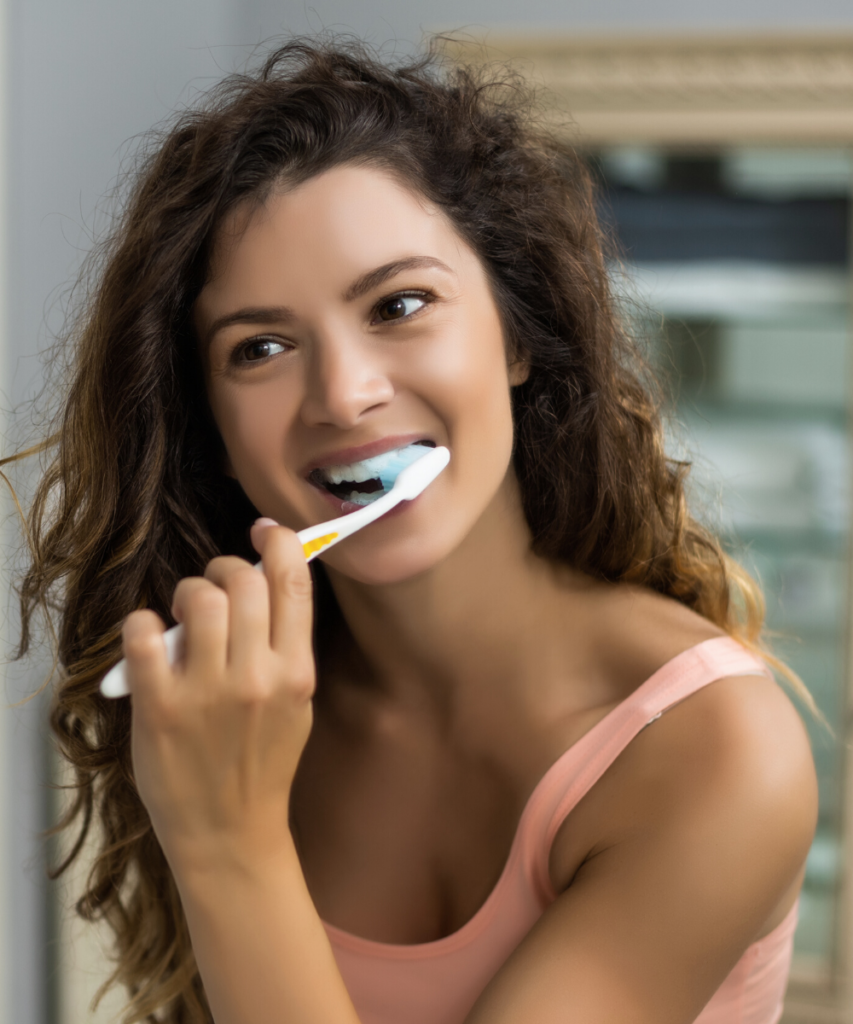


I have been a registered dental hygienist for over a decade. I have had the pleasure of working with amazing patients and educating them on their oral health throughout my career. Recently, I made the conscious decision to branch out within the dental field, choosing to maintain my dental hygiene license, and become a dental educator. With a passion for oral and systemic health, I have seen clinically the direct impact systemic health can have on oral health. I will be extending my knowledge outside of the dental chair into the world and make an impact on the lives of others. Learn more about Sara, here.
I have been a registered dental hygienist for over a decade. With a passion for oral and systemic health, I have seen clinically the direct impact systemic health can have on oral health. I will be extending my knowledge outside of the dental chair into the world and make an impact on the lives of others. Learn more about Sara, here.
Oral candidiasis, also known as thrush, is a fungal (yeast) infection that develops in the oral cavity due to an overgrowth of Candida albicans. We all have Candida albicans in our oral mucosa lining. If we have a healthy immune system, our Candida albicans will remain in a natural state of homeostasis.
However, when there is a change or disruption to the immune system (systemic diseases, cancer, malnutrition, medications, or other contributing factors), the Candida albicans can alter and proliferate. An excessive amount of Candida albicans will lead to thrush. Several reasons the amount of Candida albicans may increase are:
When there is an increase in Candida albicans, an overgrowth of white, thick lesions will develop that cause fungal infections, or thrush. When the coating is wiped off, it may leave the tissue under the sites, red, burning, and irritated (erythematous).
If this overgrowth of fungi migrates onto the tongue, it will create a coating over the taste bud sites. Those suffering from oral thrush will have an altered, cottony, or metallic taste. This metallic taste, also known as dysgeusia, will remain in the mouth until proper treatment of antifungal medication is administered from your doctor or dentist.

Dysgeusia is a dysfunction of the gustatory glands (taste). When there is an alteration or dysfunction of the taste glands, taste bud receptors do not produce tastants. These are enzymes that stimulate taste buds. When taste bud sites are altered, you can experience a bitter, sour or metallic taste in the oral cavity.
Contributing factors are medications, overgrowth of bacteria or fungi, and central nervous system diseases. These factors will alter taste receptor sites that are in several areas of the mouth including the tongue, soft palate and oral pharynx leading to metallic taste.
In a healthy immune systems thrush is easily treated and will restore to normal microbiota levels after antimycotic (antifungal) medications have been administered.
Thrush is one of the most common side effects of chemotherapy and radiation treatments. If the immune system is medically compromised, as in the case of patients undergoing chemotherapy and radiation (especially head and neck cancer treatments), thrush may be harder to treat and symptoms may become severe due to an altered or weakened immune system.
Unfortunately, cancer treatment therapies can damage mucous membranes and weaken the immune system greatly. The more intense the treatment, the weaker the immune system can get and the greater the risk for systemic infections to develop. A candida infection can last for months and even years if not treated. This may cause dehydration, severe malnutrition, and weight loss due to a loss of appetite and discomfort with swallowing.
If the oral candida infection is present in an immunosuppressed individual, the fungal infection may migrate to other areas of the body. Then, a secondary systemic candida infection can develop and may become life threatening, and in rare cases, sepsis can occur.
Subsequently, it is vitally important that cancer patients receive their proper treatment if thrush presents itself in the mouth. I strongly recommend you see your dentist and physician if you notice an altered taste and white spot lesions in your mouth.
In addition, see your dentist prior to any chemotherapy or radiation treatment and notify them you will be starting this treatment. This will allow your dentist to suggest products and oral health care tips to ensure your mouth stays healthy during cancer treatment.


Make sure to take care of your oral and overall health. If you are immunocompromised, it is crucial to be aware of any metallic taste symptoms. While oral thrush and metallic taste may leave you feeling unpleasant, these symptoms will dissipate with proper oral hygiene and medication.
MetaQil is the #1 solution for symptomatic relief of metallic taste. MetaQil’s scientifically designed formula alleviates metallic taste caused by chemotherapy, GERD, and a variety of medications. MetaQil gently cools the mouth and provides instant, long-lasting relief from metallic taste symptoms. It has a mild flavor and does not “sting” the mouth like an every-day mouthwash. Regular use of MetaQil can help patients return to healthy eating and adequate nutrient intake.
For best results, use approximately 5 ml (one teaspoon) of MetaQil®, rinse for 30 seconds, and spit out. MetaQil can be used on an as-needed basis. Use alone or after each time you brush your teeth
Important: If you are pregnant or breastfeeding, please consult your physician before using MetaQil. Do not use MetaQil if you are taking any medications that are contraindicated with the product. Please consult with your physician if you have any concerns regarding the use of this product. Keep out of reach of children.
For more information about MetaQil, click here.